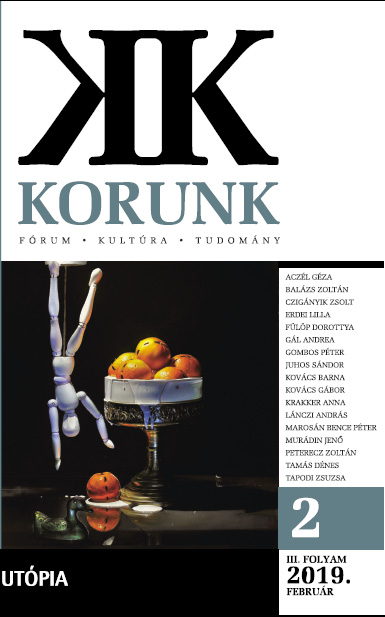Utópia és utópizmus: egy irodalmi és politikai fogalompár nyomában
Utopia and Utopianism: Literary and Political
Author(s): Zsolt CzigányikSubject(s): Political Philosophy
Published by: Korunk Baráti Társaság
Keywords: utopia; literary studies; social science; fiction; politics; dystopia
Summary/Abstract: The phenomena of utopia lie at the crossroads of literary studies and the social sciences, and their interpretation requires expertise in both these fields. This article, which is based on the introduction and afterword of the volume Utopian Horizons (CEU Press, Budapest and New York, 2018), maps the most important issues arising from the interdisciplinary nature of the investigation. The problems of fictionality require surpassing the traditional binary opposition of fact and fiction. Fictions are a part of everyday life and may offer an insight into political reality. The narrative structure of literary works is presented in parallel with the requirement of coherence in the social sciences. The role of the author is a fairly unproblematic concept in the social sciences, but implies a number of difficulties in a literary context – the author is often seen more as a function of the text than a biological person writing books. In addition to these conceptual issues, the understanding of utopias depends on whether they are considered to be unrealistic dreams or feasible options for a society. Utopias are not only present on the page (and screen), but also in political ideologies and intentional communities. Utopianism is experiencing a revival in the 21st century; yet in popular culture it usually and quite often appears in its negative form, as a dystopia. The genres of utopia and dystopia, however, are presented not as opposing, but rather complementing each other.
Journal: Korunk
- Issue Year: 2019
- Issue No: 02
- Page Range: 11-22
- Page Count: 12
- Language: Hungarian

